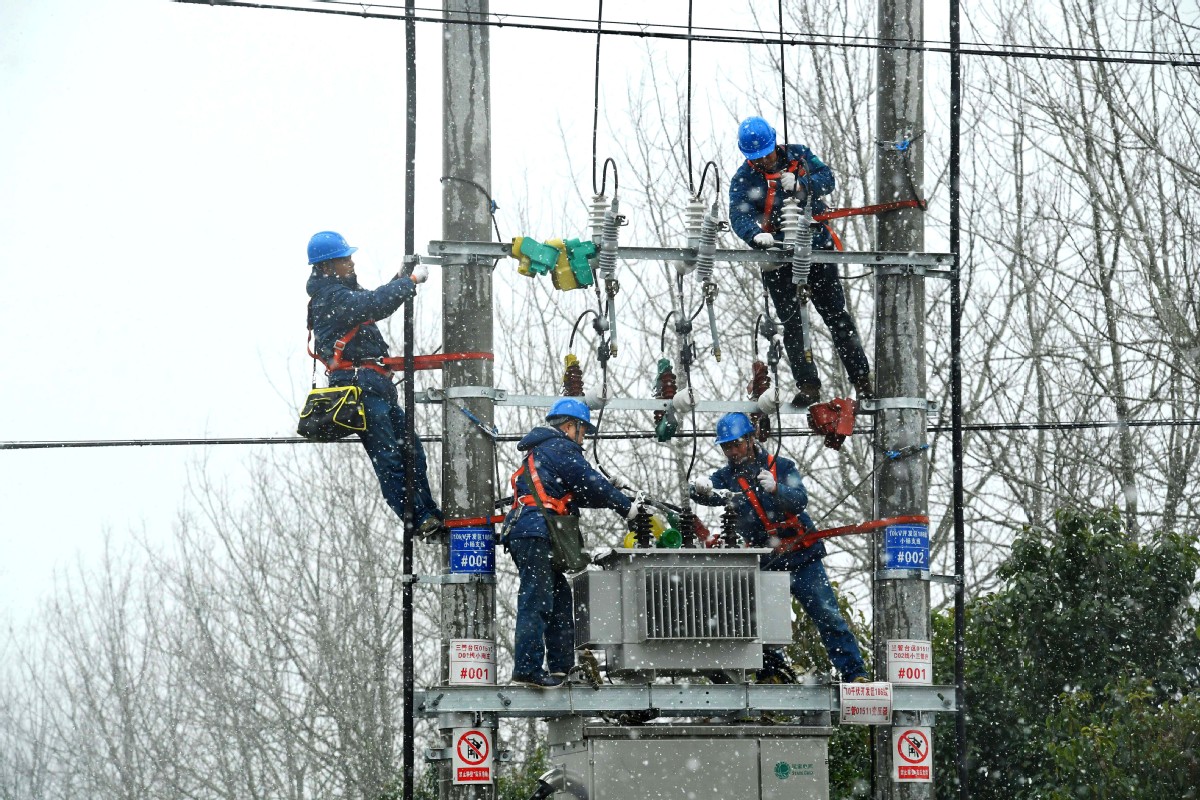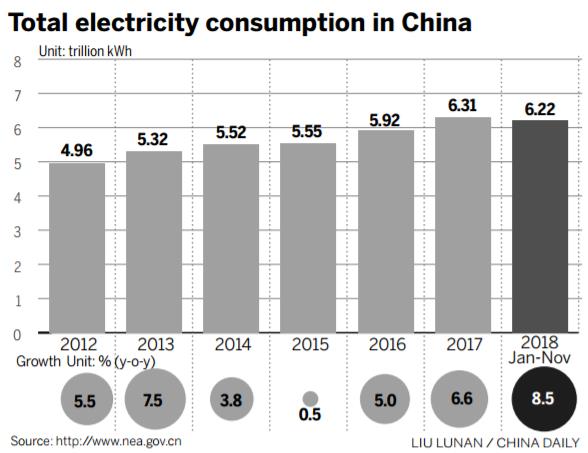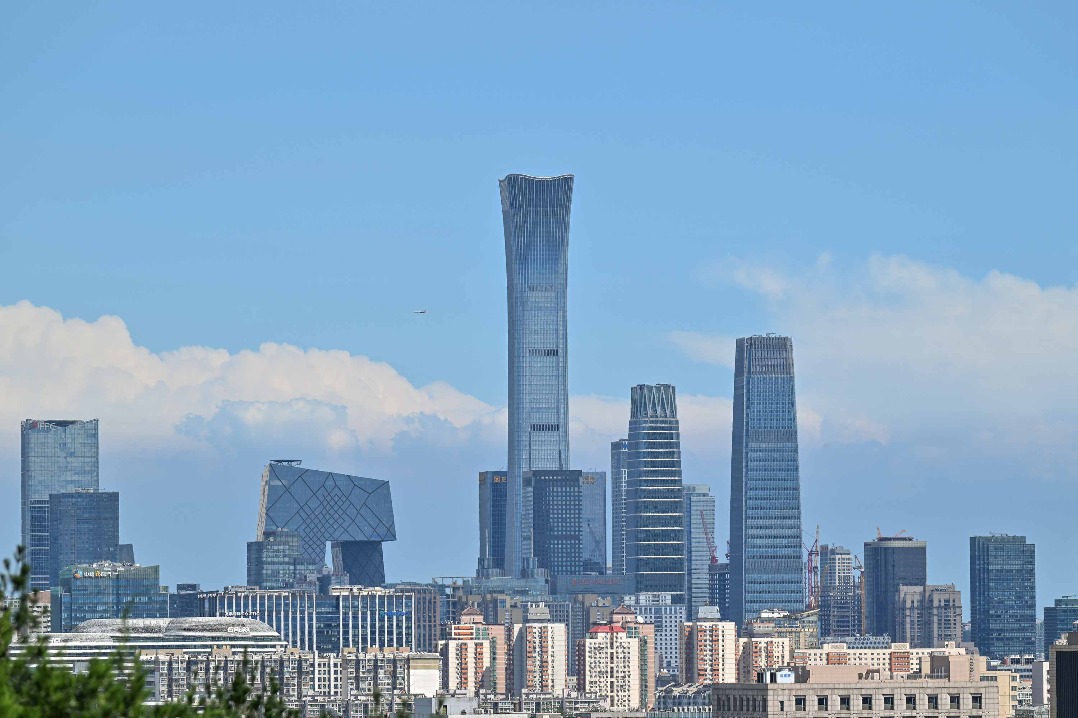Power market tipped for record 2018


New highs for electricity consumption, generation and growth, say analysts
Industry insiders say 2018 has been a record year for the Chinese electricity market, with new highs predicted for total electricity consumption, the average amount generated each day, and year-on-year growth, all driven by China's upgrading economy.
"Electricity generation and consumption figures are among the best and most straightforward indicators for a society's economic quality," said Han Xiaoping, chief analyst with China Energy Net Consulting.
"Those increases just demonstrated that the Chinese economy is developing healthily and has strong internal growth impetus that outweighs the negative influence from the outside."
Although official statistics for December haven't yet been released, industry data point to a strong end to record-breaking first 11 months.
According to the National Energy Administration, from January to November in 2018 the country's total electricity consumption was 6.22 trillion kilowatt-hours, up 8.47 percent year-on-year. Growth was 2 percentage points faster than the same period in 2017.
For electricity generation, the NEA said China created a record 6.16 trillion kWh in the first 11 months of 2018, up 6.9 percent year-on-year. Average daily electricity generation was 18.47 billion kWh in 2018, up 8.52 percent year-on-year. The shortfall between power generated and demand was made up by imported power, and examples such as factories running their own generators.
In all, six regional power grids and 26 regional power grids saw higher peak loads in the past year, including in places such as North China, Southwest China, and Shandong and Henan provinces, according to a report by business news publication Economic Information Daily.
The utilization rate of power grids in the Northeast and the Northwest, and a group of provinces including Hunan, also hit record highs in December, the report said.
Demand jumped across all sectors ranging from agricultural, industrial and service industries, and reflected the increasing living standards of Chinese people in both urban and rural areas, said Han.
According to the NEA, electricity consumption in the primary industry was 0.67 trillion kWh in the first 11 months, up 10 percent year-on-year.
In the industrial sector, consumption totaled 4.27 trillion kWh, up 7.1 percent year-on-year, and for the service sector, the numbers were respectively 0.99 trillion kWh and 12.8 percent.
Electricity consumption for household use was 0.90 trillion kWh, a year-on-year increase of 10.5 percent.

"The Chinese economy is upgrading and transforming, from dependent traditional industries to highend, manufacturing-based and service-focused," Han said.
He explained that companies in nearly all industrial sectors in China have been installing intelligent manufacturing and advanced industrial automation systems in recent years, which has increased electricity demand as they depend on power to develop and function.
"The use of industrial automation or industrial robots is increasing exponentially in China, regardless of industrial and regional differences," Han said, citing examples of industrial robot-backed factories springing up in Sichuan and Shanxi provinces, which have traditionally lagged behind economically compared with China's coastal areas.
Smart robots and new energy vehicles are also at the core of China's modern logistics industry, especially in distribution centers, an example of the fast development of the service sector with a focus on new technology applications in China, Han said.
Even in agricultural activities, computer and internet technologies are taking an increasingly bigger role, which all contribute to the increasing electricity use, he added.
Han attributed the electricity consumption growth in people's daily lives mainly to rising incomes.
The higher energy consumption comes as residents, especially in the Beijing-Tianjin-Hebei region, turn their backs on coal heating for cleaner electric options.
However, Lin Boqiang, head of the China Institute for Studies in Energy Policy at Xiamen University, says that shift accounts for only a small fraction of the growth in China's electricity consumption.
The increase is driven by energy-heavy industries, such as steel and cement, which account for a bigger role in driving the growth, and the increase in such industries are mainly due to the country's infrastructure construction, Lin said.




































